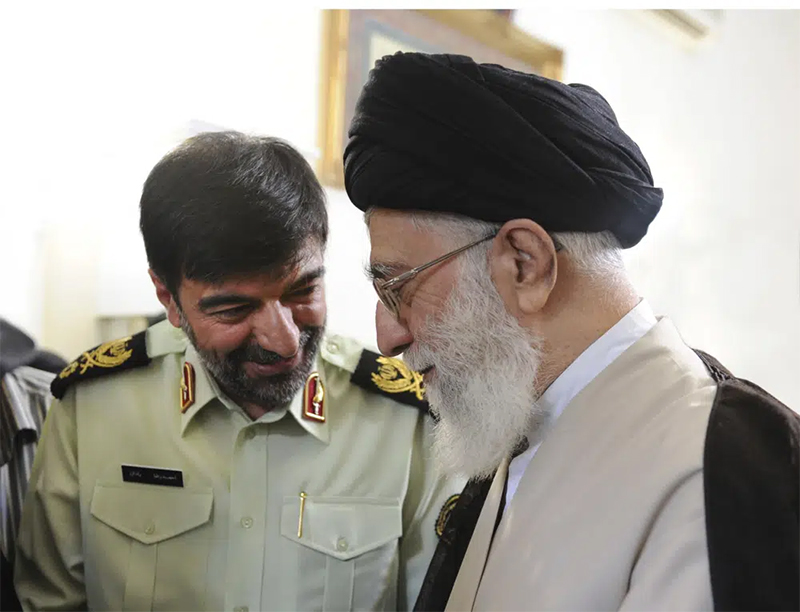07/01/2023
07/01/2023
DUBAI, Jan 7, (Agencies): Iran said it executed two men Saturday convicted of allegedly killing a paramilitary volunteer during a demonstration, the latest executions aimed at halting the nationwide protests now challenging the country’s theocracy. Iran’s judiciary identified those executed as Mohammad Mehdi Karami and Mohammad Hosseini, making it four men known to have been executed since the demonstrations began in September over the death of Mahsa Amini. All have faced internationally criticized, rapid, closed-door trials. The judiciary’s Mizan news agency said the men had been convicted of killing Ruhollah Ajamian, a member of the Iranian Revolutionary Guard’s volunteer Basij force, in the city of Karaj outside of Tehran on Nov. 3.

The Basij have deployed in major cities, attacking and detaining protesters, who in many cases have fought back. German Foreign Minister Annalena Baerbock said on Twitter that Karami and Hosseini were “more than just two names.” ”(They were) hanged by the regime in Iran because they didn’t want to submit to its brutal and inhuman actions. Two further terrible fates that encourage us to increase the pressure on Tehran through the EU,” she wrote. Heavily edited footage aired on state television showed Karami speaking before a Revolutionary Court about the attack, which also showed a reenactment of the attack, according to prosecutors’ claims.
Iran’s Revolutionary Courts handed down the two other death sentences already carried out. The tribunals don’t allow those on trial to pick their own lawyers or even see the evidence against them. Amnesty International has said the trials “bore no resemblance to a meaningful judicial proceeding.” State TV also aired footage of Karami and Hosseini talking about the attack, though the broadcaster for years has aired what activists describe as coerced confessions. The men were convicted of the killing, as well as “corruption on Earth,” a Quranic term and charge that has been levied against others in the decades since the 1979 Islamic Revolution and carries the death penalty. Activists say at least 16 people have been sentenced to death in closed-door hearings over charges linked to the protests. Death sentences in Iran are typically carried out by hanging. At least 517 protesters have been killed and over 19,200 people have been arrested, according to Human Rights Activists in Iran, a group that has closely monitored the unrest.
Iranian authorities have not provided an official count of those killed or detained. The protests began in mid-September, when 22-year-old Amini died after being arrested by Iran’s morality police for allegedly violating the Islamic Republic’s strict dress code. Women have played a leading role in the protests, with many publicly stripping off the compulsory Islamic headscarf, known as the hijab. Iran’s Foreign Ministry called the closure of the French Institute for Research in Iran a “first step” in response to the cartoons, which the magazine had billed as a show of support for anti-government demonstrations that have convulsed Iran for nearly four months. The ministry said it would “seriously pursue the case and take the required measures” to hold France accountable. On Wednesday, Iran summoned the French ambassador to complain about the cartoons.
The shuttered research institute, which is connected to the French Foreign Ministry, was created in 1983 through the merger of an archaeological delegation dating back to the late 19th century and an institute of Iran studies. It includes a library boasting some 49,000 references, including 28,000 books. On Thursday, there was a heavy security presence around the institute and the nearby French Embassy in central Tehran. Graffiti left on the outer walls - apparently by government supporters - referred to France as “the home of homosexuals” and a “place of blasphemy.” Charlie Hebdo has a long history of publishing vulgar cartoons mocking Islamists, which critics say are deeply insulting to Muslims.


